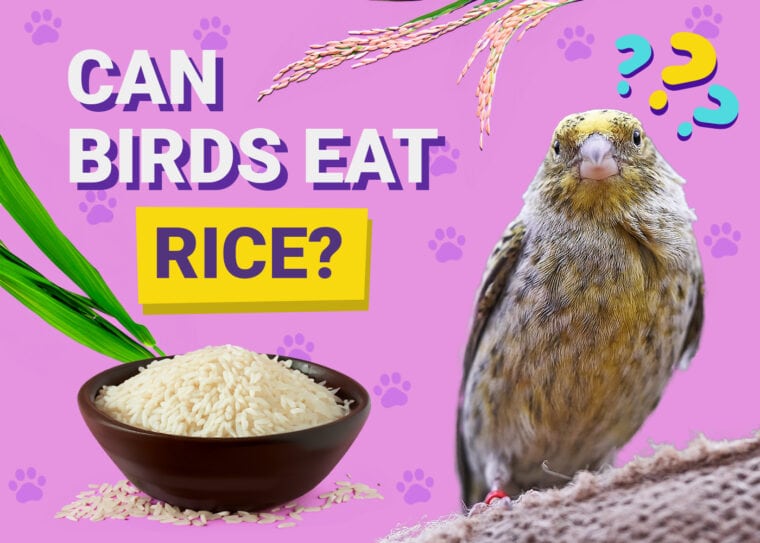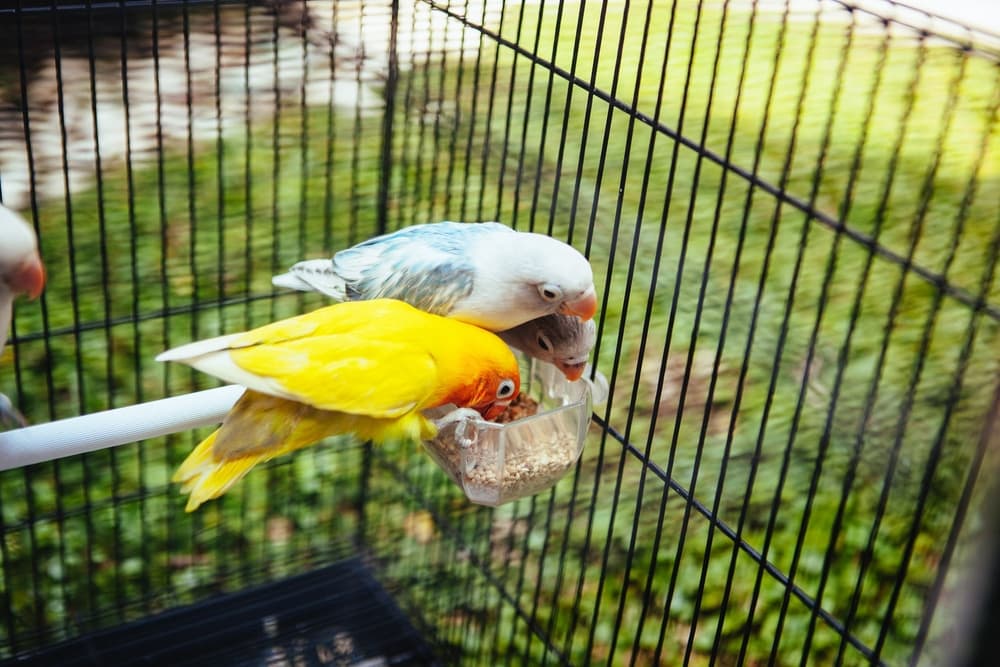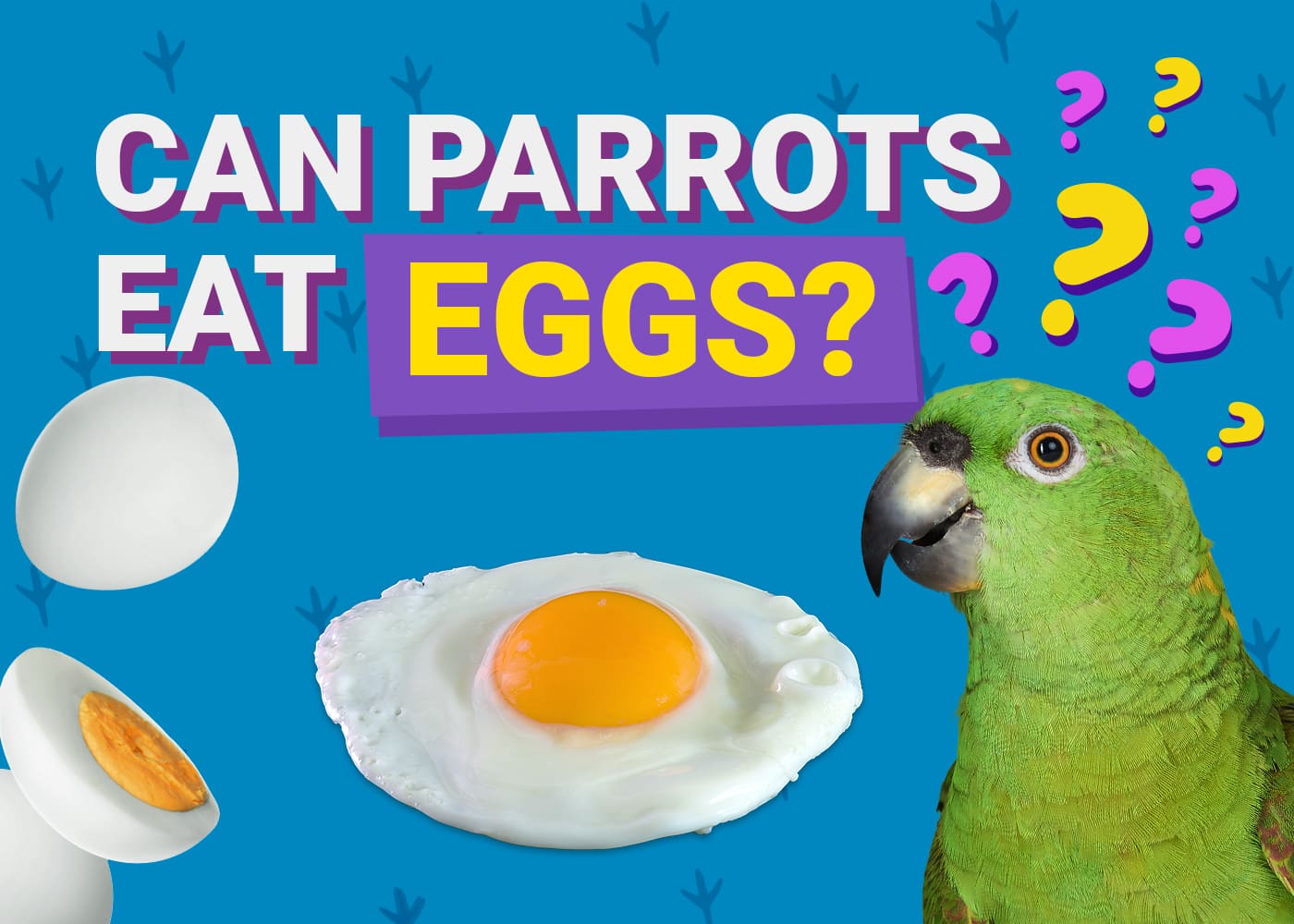
If you’ve set up bird feeders in your backyard hoping to attract beautiful and hungry guests, only to realize you don’t have any bird food to offer them—check your cupboard! Most households have this ingredient in their kitchen without realizing they can use them to feed our avian friends as well. Rice is an amazing energy source for humans and birds, providing them with carbohydrates that will keep them full throughout the day. Rice comes in many forms, and luckily, you don’t have to worry about preparing rice for birds, as they can safely consume it in any form. Of course, rice should only be fed to birds in moderation and cannot replace their regular diet.
We are here to break all myths about the safety of rice for birds and share its benefits with you.
What Do Birds Eat?
As you are probably already aware, birds mostly feed on nuts, small seeds, berries, fruits, and insects. Depending on the time of year, birds will feed on food that is available at that moment—during winter and fall, they will feed on seeds and fruits, while in summer and spring, they’ll hunt insects and even spiders. Feeding on small and large insects provides the birds with plenty of necessary nutrients, while seeds are a great alternative during cold months. While birds feed on different foods during the year, certain birds also prefer seeds and nuts. Read below to learn which foods are likely attract which bird species :

Is It Safe for Birds to Eat Rice?
Since birds can eat many types of seeds, nuts, and grains, rice is a type of food that birds can safely eat too. There is a huge misconception about feeding rice to birds, with claims that it might expand in their stomach and explode. The reason this myth was encouraged is that as we all know, raw rice tends to expand when we cook it in boiling water. But that is the crucial difference between cooking and eating raw rice. For raw rice to swell so much it could fill your entire stomach, it would need to be cooked in boiling water, which is 212°F. The conditions inside a bird’s stomach can never become fitting for the rice to expand that much. Rice may expand in a bird’s stomach after around 4 hours, but since it takes the bird 45 minutes to digest grain, it will already pass it before it even gets a chance to expand.
Luckily, rice is safe for birds in both cooked and raw forms. If you’ve fed birds rice before, you can rest assured they were left unharmed. Rice is safe for birds, and many bird species enjoy eating it.
What Type of Rice is Best for Birds?
Cooked or Uncooked Rice?
Rice is safe for birds to eat in any form offered as long it is not seasoned, salted, or prepared with oils. When it comes to feeding the birds cooked or raw rice, it is a personal choice that mostly depends on the bird’s preference. Some birds enjoy both forms of rice, while others may hesitate to eat cooked rice simply because of its unappealing appearance and texture.
Brown or White Rice
Both types of rice are healthy and beneficial for birds, although brown rice contains more protein, fat, carbohydrates, and fiber than plain white rice. Brown rice generally contains more nutritional value, although white rice is fine as well, albeit with less nutritional content and benefits.

Top 3 Benefits of Rice for Birds
Feeding rice to your backyard birds has plenty of benefits, including:
1. Excellent source of energy
Rice is rich in carbohydrates which are highly beneficial for birds, especially in cold winter weather. When fed moderately, these carbohydrates can be an excellent source of energy for the birds while at the same time ensuring dietary fiber is used correctly.
2. Accessible
Rice is readily available in most households, and if you may not have a package of rice in your cupboard, then your nearest convenience store will certainly have it. You don’t need to go to specialized pet stores to buy this type of food, as it is easy to get from most grocery stores.
3. Tasty
Many species enjoy eating rice. Most prefer uncooked rice, while some bird species will even eat cooked rice regardless of its unappealing texture. Birds will enjoy this change in their regular diets, and while it is not healthy to consider rice as a regular part of the diet, it will surely be a great occasional treat.
 Final Thoughts
Final Thoughts
We hope to finally set aside some doubts and skepticism about the safety of rice for birds. Rice is a great and nutritional grain that is a great energy source for birds, and it is safe for them in moderation. Birds love its taste, and while it can’t replace their regular diet, it can be a tasty treat.
Featured Image Credit: Amarita, Shutterstock









